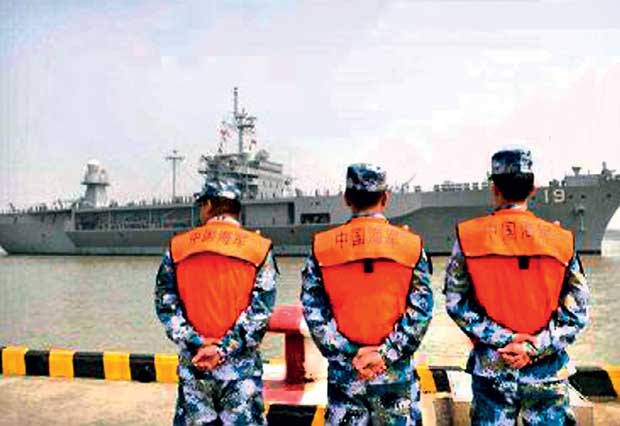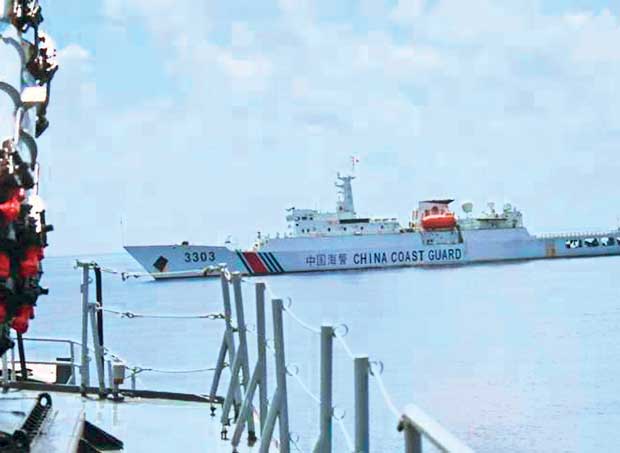14 Jul 2016 - {{hitsCtrl.values.hits}}

By Jerome A. Cohen
International media have come to focus on Tuesday’s anticipated decision in the Philippines’ arbitration against China.
Beijing’s recent propaganda and diplomatic blitz has raised the prominence of the case to new heights. The dispute involves no fewer than 15 issues, many of them highly technical. Yet the basic issue in the case whether the decision will be legally binding on China as well as the Philippines is reasonably straightforward. Still there appears to be widespread misunderstanding surrounding it.
We should recognize that this will not be a decision of the Permanent Court of Arbitration in the Hague, as so many press reports state. That institution is the facilitating administrative institution for the arbitration tribunal that has been established under the United Nations Convention on the Law of the Sea (UNCLOS) in response to the claim submitted by the Philippines against China. The decision will be made by the UNCLOS tribunal, which consists of five of the world’s leading law of the
sea experts.
Outcome debatable
Although any outcome can be arbitrarily dismissed as ‘debatable’, if properly understood there should be no doubt that despite Beijing’s endlessly repeated denunciations of the tribunal’s legitimacy — and even the competence and fairness of the arbitrators — China will be legally bound by the tribunal’s decision.
China claims that it has ‘indisputable sovereignty’ over the land features and waters involved in the South China Sea. It refuses to be bound by the tribunal’s anticipated decision on the grounds that the decision will necessarily deal with issues of territorial sovereignty (who owns which disputed islands) and maritime delimitation (how conflicting national water boundary claims should be resolved) and that China has never consented to any third party impartial arbitration of these issues.
China’s argument here is misleading. The tribunal has already indicated that its award will not decide those issues but will only concern itself with other important questions, all of which involve the interpretation and application of UNCLOS and are therefore within the tribunal’s decision-making authority. By ratifying the Convention, which requires compulsory dispute resolution and commits all parties to abide by whatever decision results, China clearly consented to accept the arbitration tribunal’s decision.
For example, the tribunal may amplify the meaning of the crucial Article 121.3 of the Convention by clarifying and applying the criteria for determining whether or not an island, no matter who owns it, is entitled to a 200 nautical mile exclusive economic zone (EEZ) and continental shelf as well as the 12 nautical mile territorial sea that attaches to every island. The tribunal may also clarify the relationship of the Convention to national maritime claims that existed prior to adoption of the Convention. In particular, it may decide whether China’s ambiguous ‘nine-dash-line’ — which first appeared on a Chinese government map after World War II before the current Communist government was established — should be deemed an ‘historic right’ that survived the Convention’s adoption.
The Convention plainly provides for the determination of such questions by an impartial, independent group of five specialists whose membership and rules of procedure are prescribed at length. No further consent is required from any nation that has ratified the Convention and has a relevant claim brought against it.

Free exercise of sovereignty
When China ratified the Convention and agreed to be bound by any decision that resulted from such a compulsory third party determination, this consent was a free exercise of Chinese sovereignty and a solemn international treaty commitment to respect and comply with whatever decision emerged from
the proceedings.
Of course, since China argues that in substance the issues raised by the arbitration involve questions of territorial sovereignty and maritime delimitation — and are therefore outside the scope of the tribunal’s jurisdiction — it has the right to present these arguments for the tribunal’s determination. But China declined to participate in the tribunal’s proceedings, unilaterally claiming that, since to its own satisfaction its arguments are legally correct, it need not present them for the tribunal’s impartial consideration. Despite this, the tribunal has done its best to evaluate China’s jurisdictional arguments.
Just think what a legal system the world would have if a country that has consented to compulsory third party decision-making — as countries have in over 90 international agreements — could simply renounce its solemn treaty promise while remaining within the treaty system and thumb its nose at the decision of the authorised independent tribunal. The provisions of UNCLOS clearly prohibit such conduct, which obviously constitutes a violation of international law.
China is evidently frantic to avoid being branded a violator of international law, even though, as its supporters point out, the United States, in a dispute with Nicaragua three decades ago, ignored a decision of the International Court of Justice after the court rejected its claim that the court lacked jurisdiction. That unfortunate action of the Reagan administration continues to damage the US’s reputation to this day. Washington’s reluctance to accept impartial third party dispute resolution may well be one of the reasons why the United States, disappointingly, has never ratified UNCLOS.
China’s current leaders, apparently only recently aware of the widespread opposition to their South China Sea legal stance, have been striving to limit the damage Beijing is about to suffer. Their spokespeople have presented all sorts of unpersuasive defences of their government’s refusal to honour its UNCLOS commitment. A few have even argued that China, by denouncing the tribunal’s allegedly improper actions, has become the true defender of international law. Instead of trying to stand international law on its head, China would be wiser to renew bilateral negotiations with the Philippines on the basis of the tribunal’s binding decision. (East Asia Forum)
(Jerome A. Cohen is Director of the US-Asia Law Institute, an NYU law professor and adjunct senior fellow for Asia at the Council on Foreign Relations)
24 Nov 2024 4 hours ago
24 Nov 2024 7 hours ago
24 Nov 2024 7 hours ago
24 Nov 2024 8 hours ago